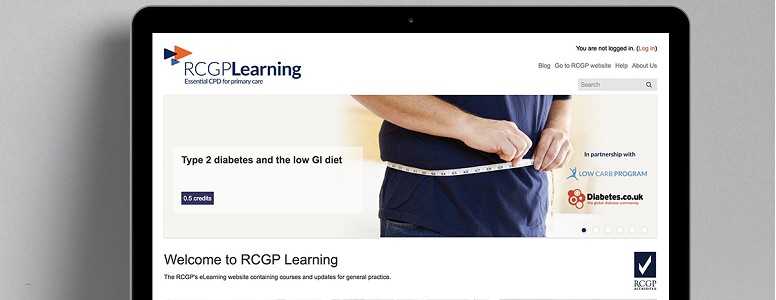An influential body representing general practitioners is urging healthcare professionals to complete a low carb course to mark Diabetes Awareness Month in November.
The Type 2 Diabetes – a Low GI Approach e-learning module is a 30-minute course aimed at educating healthcare professionals about the benefits of low carb diets in type 2 diabetes.
It was developed by Diabetes.co.uk alongside Southport GP and low-carb advocate Dr David Unwin, and published by the Royal College of General Practitioners (RCGP) in June.
Now, it has been named as the RCGP’s November course of the month to coincide with the annual campaign Diabetes Awareness Month.
The module is aimed at professionals including GPs, practice nurses, diabetic nurses and people in primary care helping people with type 2 diabetes. Nearly 450 people have completed it so far.
Comprising of three sessions, it begins by covering type 2 diabetes and a low carbohydrate diet, and participants finish the course with a 10-question assessment.
It has gained a five-star rating and initial feedback shows the increase in knowledge from the baseline assessment rises from 48% to 83% on completion.
In August, the module was praised by Lord Balfe, who is Honorary President and Global Patron of NNEdPro Global Centre for Nutrition and Health. He said: “Dr Unwin has shown the benefits to be gained from the treatment of type 2 diabetes by dietary modification. Not only does his simple and easily understandable set of modifications to diet lead to a potential life free of drugs but it also cuts the cost of treatment within an overstretched NHS.”
Dr Unwin is known as the ‘low carb GP’. He scooped the ‘NHS Innovator of the Year’ award in 2016 for his pioneering work which has seen his surgery spend £40,000 per year less than expected on medications for type 2 diabetes and reversing the condition in half of his patients.
The GP has also worked alongside Diabetes.co.uk on the award-winning Low Carb Program. So far more than 370,000 people have registered since the programme launched on World Diabetes Day in 2015, with a study exploring one-year results demonstrating significant findings, including type 2 diabetes reversal.
What's new on the forum? ⭐️
Get our free newsletters
Stay up to date with the latest news, research and breakthroughs.






